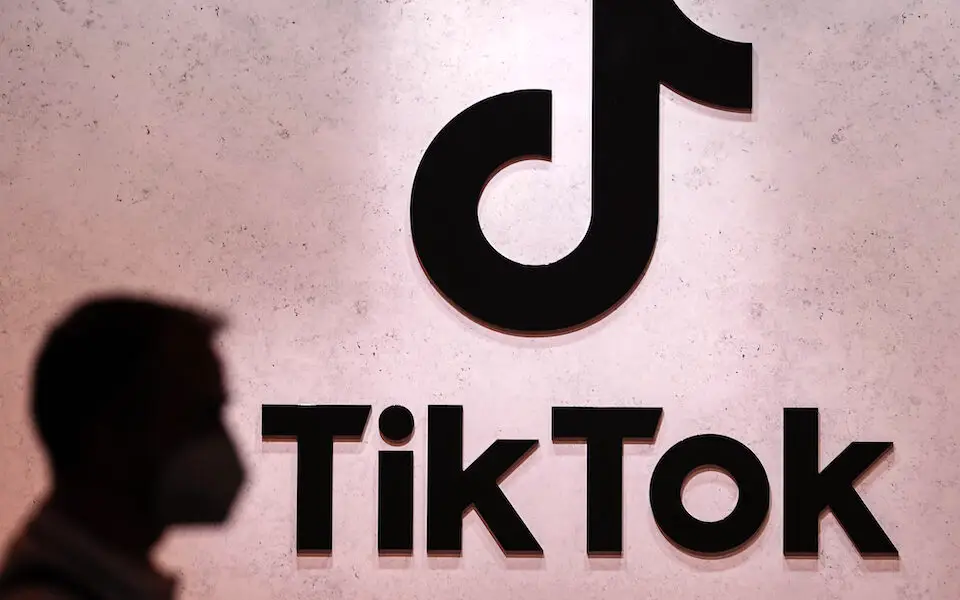| On March 23rd, Shou Zi Chew, the CEO of TikTok, was subjected to a grueling four-and-a-half- hour questioning session during a United States congressional hearing. He faced significant challenges in addressing the lawmakers’ concerns that TikTok, which is owned by Beijing-based ByteDance, poses a significant “national security threat” to the US.[1] Both Democrat and Republican lawmakers were unusually united in their distrust of the CEO and their worries about the company’s ties to China.[2] The Biden administration has been attempting to ‘ban’ TikTok in the US because it could endanger the US citizens’ data and expose them to Chinese propaganda. |
| With over 150 million active users in the country, the recent hearing was part of a broader bipartisan effort in Washington to either ban the Chinese app entirely or put pressure on it to sell stakes to an American software company to ensure the safety of user data.[3] The move to ban TikTok in the US is related to the ongoing tensions between Beijing and Washington. TikTok has been under intense scrutiny due to growing concerns that the Chinese government may use the app to access American user data. The Biden administration recently threatened to ban the app unless its Chinese owners sell their stake in the US software company. In November 2022, during a House Homeland Security Committee hearing, FBI Director Christopher Wray expressed his belief that TikTok posed “national security concerns.”[4] Consequently, the US Congress passed the “No TikTok on Government Devices Act” in December, and legislation has since been proposed to entirely ban the app.[5] Earlier this month, the bipartisan RESTRICT Act was introduced in the US Senate. The bill would enable the US Department of Commerce to ban foreign technologies that are deemed a “threat |
| to national security,” although TikTok was not specifically mentioned.[6] In addition, last month, the White House ordered government agencies to remove TikTok from federal devices within 30 days.[7] There are also concerns that TikTok’s video recommendation algorithm could be used to promote China’s foreign policy goals. |
| In response to President Biden’s demand that TikTok be sold or banned in the US, TikTok is reportedly investing millions of dollars to shift the narrative away from national security concerns.[8] Despite having 150 million monthly active users in the US, the Chinese company has intensified its lobbying efforts and spent USD 5.4 million on lobbying last year, on par with Google and Facebook.[9] During questioning by US lawmakers, Shou Zi Chew refuted claims that TikTok or ByteDance are instruments of the Chinese government. He claimed that the company has |
| repeatedly emphasised that 60 per cent of ByteDance is owned by “global institutional investors”. Interestingly, China implemented a law in 2017 mandating local companies to provide the government with any personal data relevant to the country’s national security.[10] Despite the absence of evidence indicating that TikTok has handed over such data, concerns persist due to the extensive amount of user data it accumulates. |
| As concerns surrounding privacy and cyber security intensify, an increasing number of countries have prohibited TikTok from government devices. Some countries have taken it a step further and completely banned the app.[11] In recent weeks, the White House, the UK parliament, the |
Dutch and Belgian administrations, the New Zealand parliament, as well as the governments of Canada, India, Taiwan, and Jordan have implemented partial or complete bans on the app.[12] [13] France recently banned the “recreational” use of TikTok on the government employees’ phones because of concerns about “insufficient data security measures”.[14] According to Forbes magazine, despite India’s ban on TikTok almost three years ago, the app’s developer can still obtain sensitive user data, including their location, social connections, and search history. A TikTok employee disclosed to the magazine that “I don’t think [Indians] are aware of how much of their data is exposed to China right now, even with the ban in place.”[15]
All these evidences from across the world have pushed US lawmakers and national security officials to conclude that the Chinese government could access user data collected by Tiktok. These concerns have led to calls to ban TikTok from government devices in the West. Recently, the European Union’s top policy-making institutions, the Commission and the Council, also banned TikTok from staff phones due to “cyber security concerns”.[16]
Beijing has predictably accused Washington of “spreading disinformation and suppressing” TikTok.[17] China’s foreign ministry has stated that the US has not provided any proof that TikTok poses a threat to national security and that Washington is using data security as an excuse to “abuse its power to suppress foreign companies”. Various reports have documented incidents in which ByteDance employees accessed American user data, including the IP addresses of American journalists. TikTok has acknowledged the scandal, stating that the workers “abused their authority.” Importantly, these concerns arise during a time of heightened tensions between the two countries, causing Washington to be more cautious than ever of China’s illegitimate ways
to steal user data and enhance its narrative-building operations at the global stage.
[1] https://www.theverge.com/23651507/tiktok-ban-us-news
[2] https://www.bbc.com/news/65047087
[3] https://www.washingtonpost.com/technology/2023/03/23/tiktok-ban-ceo-congress-hearing/
[4] https://www.npr.org/2022/11/17/1137155540/fbi-tiktok-national-security-concerns-china
[5] https://apnews.com/article/technology-politics-d33e58c76bb3c13297c72816ef4e6231
[6] https://www.theverge.com/2023/3/7/23629469/restrict-act-bytedance-tiktok-ban-bipartisan-bill-warner
[7] https://www.latimes.com/world-nation/story/2023-02-28/tiktok-ban-us-government-devices-within-30-days
[8] https://www.forbes.com/sites/joewalsh/2023/03/15/us-threatens-to-ban-tiktok-unless-chinese-owners-sell-platform- reports-say/?sh=65d40c9d7506
[9] https://www.npr.org/2023/03/22/1165249928/tiktok-congress-hearing-lobbyists-infleuncers
[10] https://www.hrw.org/news/2017/11/19/china-police-big-data-systems-violate-privacy-target-dissent
[11] https://economictimes.indiatimes.com/tech/technology/here-are-the-countries-that-have-bans-on- tiktok/articleshow/98949332.cms
[12] https://www.nytimes.com/article/tiktok-ban.html
[13] https://www.cbc.ca/news/canada/tiktok-data-collection-privacy-1.6763626
[14] https://www.aljazeera.com/news/2023/3/25/france-bans-tiktok-on-work-phones-of-civil-servants
[15] https://www.forbes.com/sites/conormurray/2023/03/23/heres-what-happened-when-this-massive-country-banned- tiktok/?sh=7b716d8c2c03
[16] https://www.theguardian.com/technology/2023/mar/08/tiktok-european-data-security-regime-us-ban-social-video-app [17] https://www.aljazeera.com/news/2023/3/16/china-us-spreading-disinformation-and-suppressing-tiktok
ReplyForward

